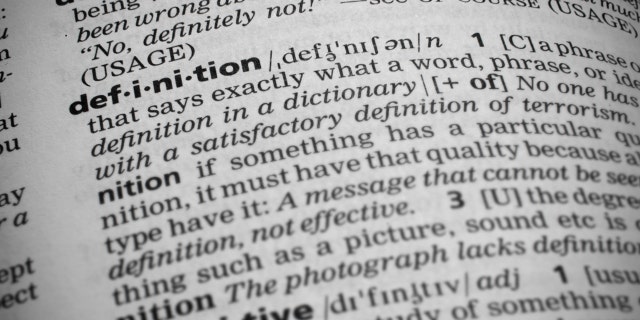Sunday, October 17, 2021
Lost in 'Squid Game' translation - Korea Times - Translation
 |
So, I took a natural interest when I saw how the English translation of some of the Korean linguistic features in "Squid Game" triggered an international debate. Indeed, I also came across some points of language that I thought could have been conveyed better. For example, I think using "disqualified" instead of "eliminated," for when a contestant fails and is shot is a more accurate translation. It also conveys the sense of ironic euphemism that informs the original Korean expression.
Having said that, I truly appreciate the art form that Korean-English translation can be. Translation is a recreation of the language arts, not a mechanical transcription. You have to convey a meaning that's necessarily couched within a localized and era-sensitive context. Language is an invisible bridge that connects the speaker to the audience inside a specific and defined sociocultural proximity. Translation and interpretation attempt to recreate that bridge with a different audience that's not within the same cultural geography. Especially with subtitles, this has to be done under the restriction of character limit and formatting constraints.
I came across a "Squid Game" meme that speaks to this more eloquently than I ever could. It's about how Han Min-yeo's character uses the term "oppa" in nuanced ways. Oppa, in its most basic form, is a word that a younger female sibling would use to address her older male brother. However, the use of this term has morphed in so many different ways in South Korean society that it can mean a client, customer, boy band member, boyfriend, male friend, etc., depending on who and to whom the term applies in what social context, regardless of age. In "Squid Game," Han is almost weaponizing the term with charm, cynicism, double entendre and wit to manipulate the interpersonal and group dynamics that optimize her chances of survival. But try saying all that in a subtitle. By the way, talking about double entendres, Han Min-yeo also translates as, "One Beautiful Woman." So, every time she is called by her name, that meaning is conveyed.
This isn't anything new. Every language contains words like "oppa" that are impossible to translate and maintain the full complexity and personality of each term within a specific context. For some insight and comedic relief, look up the different ways that native English speakers use the word "sh*t." Translating oppa is easier.
Therefore, the criticism about the subtitle or dubbing translation of "Squid Game" into English is missing the point. With its massive success, "Squid Game" has already proven that its appeal cuts across cultures and delivers meaning that can self-localize to cultures that are vastly different from one another. Numbers don't lie. According to Netflix, over 111 million people watched it globally within 25 days of its release.
Maybe that's the whole point of translation, especially of works of art. As long as the foundational dynamics and lessons underlying the storyline are conveyed, translating every single esoteric nuance of the original language isn't necessary. Nay, it could even be a distraction to the overall flow of the story. Also, you run the risk of turning the work into something that's so thick and rigid that it doesn't brook any flexibility for the audience to localize it in relation to their own experiences.
Of course, the kind of translation I am talking about isn't on par with the interpretation involved in negotiations between the U.S. and North Korea. In those cases, the interpreter has to be strictly literal, even using the wrong or inappropriate words if that's what the original speaker used. However, in most cases, translation or interpretation should be about placing the dots in positions that generally resemble the original pattern but lets the audience connect them in a way that makes the most sense to their individualized situations. If you connect the dots in premeditated ways that cannot be changed, you are robbing the audience of the chance to make the work their own, since they can't engage with something if they can't move within and around it. Freedom of narrative movement is what creates personalized meaning in stories.
Much of the criticism over translation of "Squid Game" is accurate but also nitpicking. In a way, I also believe that it comes from a place of pride. By that, I mean that the Korean critics are immensely proud that a homegrown TV series has struck such a nerve globally and want to make sure that the larger audience gets every subtle, clever and deep connotation behind the artistic choices of the wonderful script. But art is successful only when it becomes personally relatable, and that can only happen in between the spaces of its interpretation. Trying to impose only a single, correct way for art to be enjoyed makes it no longer art; it becomes a chore.
Jason Lim (jasonlim@msn.com) is a Washington, D.C.-based expert on innovation, leadership and organizational culture.
Squid Game: Why you shouldn't be too hard on subtitle/dubbing translators - Rappler - Translation

Dubbing needs to match the duration of the original dialogue, follow the same delivery to fit the gesticulations of the characters, and adjust to the lip movements of the actors on the screen. Subtitles, on the other hand, need to be read quickly to keep up with the pace of the film. We talk faster than we can read, so subtitles rarely include all the spoken words. The longer the subtitle, the longer the viewer will take to read it and the less time they will have to watch. According to Netflix policies, for example, subtitles can’t have more than two lines and 42 characters, and shouldn’t stay on the screen for longer than seven seconds.
Saturday, October 16, 2021
MATSON | Industry-specific language is often lost in translation - Manhattan Mercury - Translation

When I toiled in the vineyards of television news, often among my duties was the recording of the video news feed from the network.
During finite periods of time (generally later afternoon, about an hour before local news broadcasts), via closed circuit, the network, in this case, CBS, would offer fresh video material to the affiliates to slice/dice and/or cut/paste as they saw fit to fill holes in their pending local broadcasts.
Very often, a specific piece from the network was not quite ready. On those occasions, these character generated words would appear on screen:
“Efforting… keep tape at speed.”
That last part meant if you waited to start recording until the video was finally sent, you were out of luck, since given of the foibles of the state-of-the-art technology of the day, it took a few seconds for the physical tape in your video recorder to actually get up to recording speed.
If your tape was not at speed, the first few words of audio would sound like HAL 9000 singing “Daisy” as Dave Bowman methodically set about unscrewing his Plexiglas innards.
“Efforting,” meant just that.
It meant those poor, underpaid, overworked network schlubs on the sending end were busting their humps during this finite period of time to get this video finished and out to us poor, underpaid, overworked schlubs on the affiliate station receiving end.
(Schlub yin/yang).
To make an already long story short (I guess actually, it’ll make it longer, sorry), today when someone asks me for the random status update, I’ve been known, on occasion, to respond, “Efforting. Keep tape at speed.”
This is often greeted by a quizzical look, accompanied, no doubt, by one of these two thoughts:
A. No clue what he’s talking about, but I suspect it’s a dated reference.
B. He doesn’t have what I want.
All of which led me to ponder the shelf-life of words, phrases and cultural linguistic shorthand. Some of which I grow increasingly weary:
“At the end of the day…”
“It is what it is…”
“To be transparent…” (We used to call this “being honest.”)
“Reaching out…” (This used to be known as “gimme a call.”)
“Going forward…”
Another one that grates on my linguistic expectations is what I consider sportscasters’ misuse of the word, “scuffling.” “Santana’s been scuffling a bit as of late…” Huh? I thought “scuffling” meant fighting or scrapping but lately, it’s used as though it means, “struggling.”
Maybe there’s a new definition I’m not aware of. But since I looked it up in the Urban Dictionary, I tend to think not.
And my new all-time recent fave,
“I know, right?”
Lest we forget the words and phrases which seem unique to each generation, mine included. Then we say them out loud in the presence of others.
And our offspring just look at us and sigh. Us late wave boomer can lay claim to these pearls:
“Get down,” “bodacious,” “right on,” “boogie,” “booking” (as in going fast).
Which reminds me of the time in the television news vineyard toiling years when a colleague and I booked into Sonic in Junction City for a late lunch because we were in a hurry (no doubt to be back to Topeka to get the tape up to speed by 4 p.m.)
After a burgerless 15 minutes, I re-punched the red button and offered,
“Yo! What’s the status of those burgers?”
The reply was something to the effect of, “Doin’ the best we can in here.”
Clearly the Sonic equivalent of “Efforting. Keep tape at speed.”
Mike Matson’s column appears every other Sunday in The Mercury. Follow his blog at mikematson.com
National Dictionary Day: Surprising facts about the resource book - Fox News - Dictionary
Saturday is National Dictionary Day and what better way to celebrate than to learn a few facts about the resource book?
The U.S. celebrates National Dictionary Day on Oct. 16 every year in honor of the birthday of Noah Webster, considered to be the father of the American dictionary, according to Merriam-Webster.
According to the dictionary website, National Dictionary Day "celebrates language, emphasizes the importance of learning and encourages readers to use the dictionary to improve vocabulary."

Saturday is National Dictionary Day. The U.S. celebrates the holiday on Oct. 16 every year in honor of Noah Webster’s birthday. Webster is considered the father of the American dictionary. (iStock)
The website offers some ways to celebrate, including playing word games like crossword puzzles or word searches, hosting a spelling bee or learning a new word.
You can also celebrate by reading these interesting facts about the dictionary.
RARE US CONSTITUTION COPY UP FOR AUCTION EXPECTED TO FETCH $15M
The first English language dictionary was created in 1604
Robert Cawdry released "A Table Alphabeticall" in 1604, making it the "first single-language English dictionary ever published," according to the British Library. The resource book had about 3,000 words and "simple and brief descriptions."

The first English language dictionary was released in 1604 and the first American dictionary was published in 1806. (iStock)
The first American dictionary – "A Compendious Dictionary of the English Language" – was published in 1806 by Noah Webster, according to the Merriam-Webster website.
In 1828, Webster published "An American Dictionary of the English Language," which had 70,000 entries.
CLICK HERE TO GET THE FOX NEWS APP
No English dictionary contains every word in the English language
According to Merriam-Webster, it’s silly to rely on any single dictionary to contain every word in the English language, even though dictionaries "tend to be rather large books."
"There has never been, and never will be, a dictionary that includes all the words in English," Merriam-Webster said on its website.
According to the dictionary, some dictionaries leave out words that are out of date or irrelevant to most people.

Pneumonoultramicroscopicsilicovolcanoconiosis is generally understood to be the longest word in the English language, with 45 letters. (iStock)
Words aren’t decided by lexicographers
According to the Merriam-Webster website, different dictionaries have various criteria for adding words. However, the general rule for adding or removing a word from the dictionary depends on data surrounding how often a word is used.
"If enough people use a certain word in a certain way for a certain length of time (or if it has substantial currency in a particular field, such as medicine) it will be added to a dictionary," Merriam-Webster writes on its website.
CLICK HERE TO SIGN UP FOR OUR LIFESTYLE NEWSLETTER
The longest word in the English language has 45 letters
Pneumonoultramicroscopicsilicovolcanoconiosis is generally understood to be the longest word in the English language, with 45 letters. The word refers to a lung disease, according to Lexico.
Other words considered to be among the longest in the dictionary are antidisestablishmentarianism (a 28-letter word referring to the "opposition to a breaking away from an established church," according to Dictionary.com) and floccinaucinihilipilification (a 29-letter word meaning "the estimation of something as valueless," according to Dictionary.com).

Eunoia, which means "beautiful thinking" according to Guinness World Records, is the shortest word in the English language that has all five main vowels. (iStock)
FOLLOW US ON FACEBOOK FOR MORE FOX LIFESTYLE NEWS
The shortest word with all five vowels in the English language is just 6 letters
Eunoia, which means "beautiful thinking" according to Guinness World Records, is the shortest word in the English language that has all five main vowels.
Of course, the two shortest words in the entire English language are "I" and "a", with just one letter each. According to Lexico, there are 103 two-letter words.
Today is a perfect time to think about dictionaries - The San Diego Union-Tribune - Dictionary

Today is National Dictionary Day, traditionally celebrated on the birthday of Noah Webster (1758-1843), who, in 1806, gifted our young nation with his Compendious Dictionary of the English Language, the first great American dictionary. The occasion inspires me to share this letter, along with my response:
DEAR RICHARD: Reading the preface in Eley Williams’ book The Liar’s Dictionary, I came across this confection: “Whether a dictionary should register or fix the language is often toted as a qualifier. Register, as if words were so many delinquent children herded together and counted in a room; fix, as if only a certain number of children are allowed access to the room, and then the room is filled with cement.” I gather from your writings that you champion the former position. Does that make you a registrant? —Rich Olcott, Coronado
Yes, I am a registrant — a descriptivist who believes that all words shared by a variety of speakers and writers should repose in the dictionary. At the same time, I believe that a dictionary should indicate that some words in its pages should be flagged as “nonstandard.” In short, people influence dictionaries, and dictionaries influence people.
***
The San Diego Union-Tribune’s Successful Aging Expo Online returns Oct. 23-30. This fall’s interactive online event offers free admission with a simple registration for all attendees. Celebrating its 12th year, the event will showcase local businesses and services that cater to active older adults, plus a full slate of expert speakers. Presented on an easy-to-navigate online platform, the event brings the audience seminars and demonstrations that include both serious and lighthearted topics. All seminars and exhibitor booths, including mine, are available for viewing on-demand every day throughout the run of the event so that attendees may enjoy visiting at their own convenience.
DEAR RICHARD: One trite comment that raises my hackles is “I would like to take this opportunity to thank this person for...” If you would like to, then don’t tell us what you would like to do, do it, as in: “I am happy to thank this person for...” —Bill White, Mission Valley
At my speaking engagements, hosts often lead off with “I would like to introduce Richard Lederer.” Similar to Bill White’s response, I think, “Of course you would like to introduce me, so get on with it!”
DEAR RICHARD: Years ago, Lakers owner Jerry Buss bought a piece of property in Los Angeles (I am not making this up) that was previously owned by actors Douglas Fairbanks Jr. and Mary Pickford. The estate was known as “Pickfair.” So, ever the comedian, I had to ask, “Does he plan to call it “Bussfare”?
Also: At the 1994 Winter Olympics, in Lillehammer, Norway, a cute American girl, Picabo Street, showed up and walked off with multiple skiing medals. She was quite generous with the money she made from celebrity endorsements and funded a Sports Medicine Center at a hospital in her home town. I observed that she missed a great opportunity! She could have given the money to an Intensive Care Unit, so they could have named it after herself: The PeekABoo ICU. —Mary Jo Crowley, Escondido
DEAR RICHARD: This was a question on “Jeopardy!” that I saw as a child many, many years ago: An eight-letter word with only a single vowel! I loved that clue and never forgot that the answer was: “What is strength?” —Deborah Lessard, Spring Valley
Actually there’s a longer such word: strengths, as in “strengths and weaknesses.”
* * *
How many nouns can you think of that, instead of adding a suffix, as in cats and dogs, become plural by changing internal vowels? Answers repose at the end of this column. Clue: two kinds of people, three animals and two body parts.
* * *
In Moon Tiger Penelope Lively wrote: “We open our mouths and out flow words whose ancestries we do not even know. We are walking lexicons. In a single sentence of idle chatter we preserve Latin, Anglo-Saxon, Norse: we carry a museum inside our heads, each day we commemorate peoples of whom we have never heard.”
* * *
Answers: man-men, woman-women; goose-geese, mouse-mice, louse-lice; foot-feet, tooth-teeth.
Friday, October 15, 2021
Sally Rooney’s translation debacle is a political stunt that misses the plot - Forward - Translation
There is no honor in boycotting a language and a people. And yet that is what Sally Rooney has effectively done, despite her statement to the contrary, by blocking Hebrew translation of her new novel, “Beautiful World, Where Are You” by Modan Publishing House.
Hebrew belongs to no one nation state. It is an ancient language; its elegant letters are spread out before you when you unroll a Torah scroll. To be translated into Hebrew is to become part of a very long and immensely varied history, and to find oneself placed in that line of Hebrew texts calls for a measure of humility in response.
Rooney has had the privilege of being translated into Hebrew before: translations of her first two novels, “Conversations with Friends” and “Normal People”, were both published by Modan.
But Rooney now claims that, while “it would be an honor” to have her “latest novel translated into Hebrew and available to Hebrew-language readers,” in the very next sentence, adds that “for the moment, I have chosen not to sell these translation rights to an Israeli-based publishing house.”
If she is acting in compliance with the BDS movement, as she claims, then any potential Hebrew language publisher would likely need to be located outside of Israel, “publicly distance itself” from the country, or even prohibit the translation from being sold in Israel — a tough order, given the international character of online sales — in order to work with Rooney.
The author writes that she is only making this decision “for the moment.” Presumably, as soon as peace breaks out, she would change her mind. Or perhaps a Hebrew language publisher who adopts the BDS motto of choice — “Palestine will be free from the river to the sea” — can be accommodated.
There is no indication that Rooney plans to turn down translation of her latest work by potential Russian or Chinese publishers; she is apparently comfortable with a very selective application of any relevant principles. On that point, she is once again in harmony with the BDS movement.
As a political stunt, her decision might be effective. But if she wished to spark meaningful conversation or change the status quo, she entirely missed the plot.
Whatever the temporary benefits of royalties, in the end, the only reason to publish is to acquire readers — the more the better. Publication, at its best, triggers an international conversation. But instead of discussing her ideas, we’re now discussing her politics.
To publish a book and deny a given group of language speakers access to the book when you have been offered translation is to betray the international community of readers and writers — a community that should honor no borders, a community that transcends the rise and fall of nations.
Rooney is not the first writer to reject translation into Hebrew, though that is a rather small politicized community. All those who do so carry the burden of the boycott as part of their identity thereafter. It is a banner stretched across their reputations and their books. So long as it stands it cannot be undone, and it is not an honorable company for any writer to join.
Some anti-Zionist readers may now be drawn to her work. Others will avoid it. Was that her purpose for writing the novel all along?
If she really wanted to reach Hebrew speakers, Rooney could have written a preface to a Hebrew language translation, raising her concerns about the Israeli-Palestinian conflict. It could be as detailed as she wishes, and that would be a perfectly honorable way to proceed.
But instead, Rooney has chosen instead to boycott Hebrew readers. No one would consider writing a special preface to be a publicity stunt. And yet, being associated with a publicity stunt is the inevitable consequence of the choice Rooney has made. She has initiated a publicity stunt whether or not that was her intention.
She could still reverse course and choose the other option. I hope she will.
Cary Nelson is professor emeritus at the University of Illinois at Urbana-Champaign. His most recent book is “Peace and Faith: Christian Churches and the Israeli-Palestinian Conflict.”
To contact the author, email opinion@forward.com.